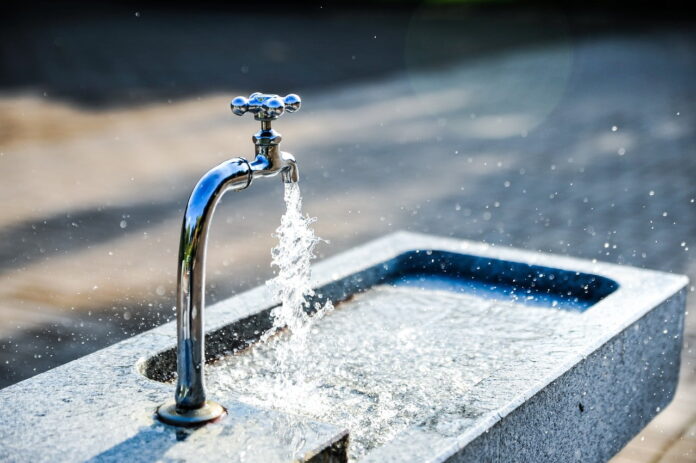Water is the lifeblood of our planet, a critical resource that sustains ecosystems, economies, and societies. Yet, the state of global water resources is a growing concern. With the world’s population projected to reach nearly 10 billion by 2050, the demand for fresh water is expected to increase by 55%. Climate change exacerbates the situation, altering precipitation patterns and reducing the predictability of water supply. Over 2 billion people currently live in countries experiencing high water stress, and by 2025, two-thirds of the world’s population may face water shortages. This dire scenario underscores the urgent need for innovative solutions in water stewardship to ensure a sustainable future.
Revolutionary Water Purification: Advancements in Filtration and Desalination
The quest for clean water has led to significant advancements in purification technologies. Revolutionary filtration systems, such as graphene-based filters, can now remove contaminants more efficiently than ever before. These filters are capable of eliminating nanoparticles, viruses, and bacteria, making water safe for consumption with minimal energy input. Desalination, the process of converting seawater into fresh water, has also seen remarkable progress. Cutting-edge techniques like forward osmosis and capacitive deionization are reducing the energy costs associated with traditional desalination methods, making it a more viable option for water-scarce regions.
Innovations in membrane technology are pushing the boundaries of what’s possible in water purification. New materials and designs are enabling membranes to target specific contaminants, offering tailored solutions for diverse water quality issues. Solar-powered desalination systems are emerging, harnessing the power of the sun to provide clean water without relying on fossil fuels. These advancements not only improve access to potable water but also contribute to the resilience of water infrastructure in the face of climate change.
Smart Water Management: IoT and AI in Monitoring and Distribution
The integration of the Internet of Things (IoT) and Artificial Intelligence (AI) into water management is transforming how we monitor and distribute this precious resource. Smart sensors placed throughout water systems can collect real-time data on flow rates, pressure, and quality, enabling precise control and early detection of leaks or contamination. AI algorithms analyze this data to optimize water distribution, reduce waste, and predict maintenance needs, ensuring a more efficient and reliable supply.
IoT technology also facilitates remote monitoring of water resources, allowing for better management of irrigation in agriculture, which accounts for 70% of global freshwater withdrawals. By using soil moisture sensors and weather forecasts, farmers can apply water only when and where it’s needed, significantly reducing water usage. In urban areas, smart meters help consumers track their water consumption, promoting conservation through awareness and real-time feedback.
Harvesting the Heavens: Innovations in Rainwater Collection and Storage
As freshwater sources become more strained, capturing rainwater presents a sustainable alternative. Innovations in rainwater collection and storage systems are making it easier and more efficient to harness this natural resource. Modern rainwater harvesting systems are designed to be integrated into buildings and landscapes, collecting water from rooftops and directing it to storage tanks. These systems often include filtration and purification components, making the collected water suitable for various uses, from irrigation to drinking.
Advances in materials science have led to the development of more durable and efficient storage solutions, such as modular tanks that can be easily expanded and smart cisterns that optimize water usage based on weather predictions. Community-scale projects demonstrate the potential of rainwater harvesting to significantly contribute to local water supplies, reducing dependence on traditional water sources and enhancing resilience to droughts.
Wastewater Reclamation: Turning Waste into Resource with Cutting-Edge Treatment
Wastewater reclamation is a critical component of sustainable water management. By treating and reusing wastewater, we can turn what was once considered waste into a valuable resource. Advanced treatment processes, such as membrane bioreactors (MBRs) and ultraviolet (UV) disinfection, are enabling the production of high-quality reclaimed water that is safe for a variety of uses, including agricultural irrigation, industrial processes, and even indirect potable reuse.
Emerging technologies are focusing on resource recovery from wastewater, extracting nutrients like phosphorus and nitrogen for use as fertilizers. Energy can also be recovered in the form of biogas, a byproduct of the treatment process, which can be used to generate electricity. These innovations not only reduce the environmental impact of wastewater but also create a circular economy, where every drop of water is valued and utilized to its fullest potential.
The Role of Policy and Education in Shaping a Sustainable Water Future
The successful implementation of pioneering eco-technologies for water stewardship depends heavily on supportive policies and an informed public. Governments play a crucial role in setting regulations that encourage the adoption of sustainable water practices and technologies. Policies that promote water efficiency, protect natural water sources, and provide incentives for innovation are essential for driving change.
Education is equally important in shaping a sustainable water future. Public awareness campaigns and educational programs can increase understanding of water issues and inspire conservation efforts. By educating the next generation about the value of water and the technologies that can protect it, we can foster a culture of stewardship that prioritizes the sustainable management of this vital resource.
The future of H2O hinges on our ability to embrace and implement pioneering eco-technologies for water stewardship. From revolutionary purification methods to smart water management, and from harvesting rainwater to reimagining wastewater, these innovations offer hope in addressing the critical state of global water resources. However, technology alone is not enough; it must be coupled with effective policy and education to truly transform our relationship with water and secure a sustainable future for all.
